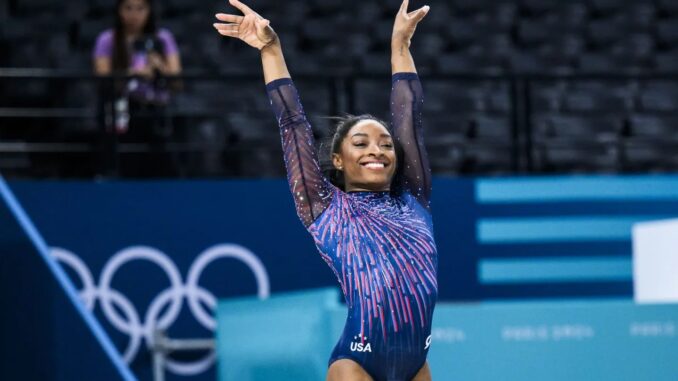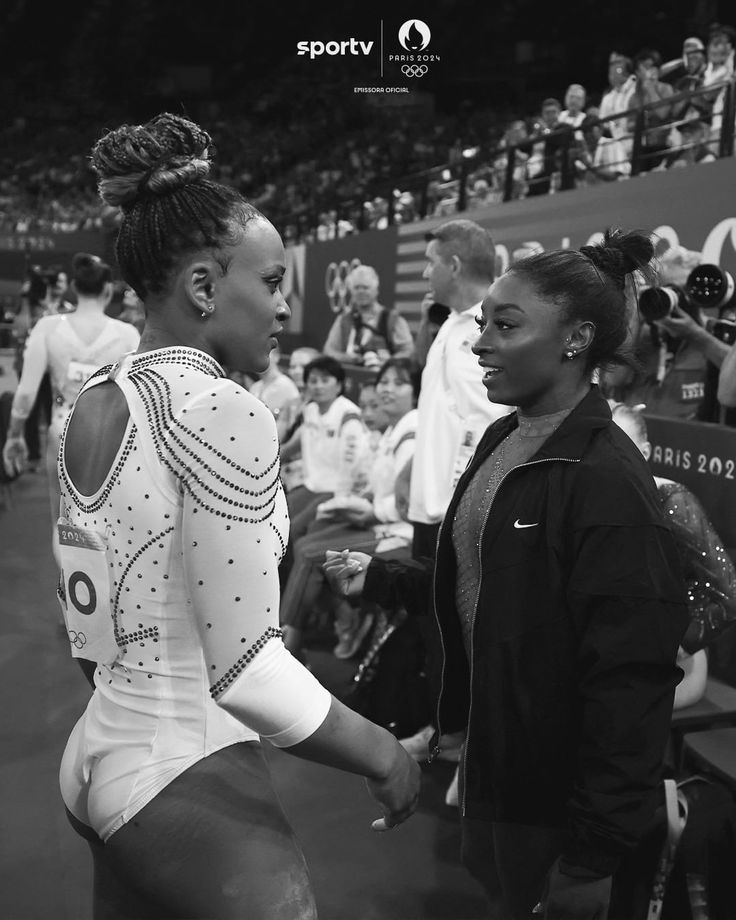
Danica Patrick has weighed in on Simone Biles and Riley Gaines’ explosive feud. The 7-time Olympic gold medalist slammed the former swimmer in an X, formerly Twitter post over the weekend, calling her a “sore loser.” She made the scathing remark in response to the 25-year-old’s criticism of a Minnesota high school softball team’s victory while being led by a trans pitcher. Former NASCAR driver Danica Patrick weighs in on Simone Biles-Riley Gaines feud
As the duo exchanged barbs on social media, former NASCAR driver Patrick took to social media to back Gaines. “This issue has a shelf life. I truly believe common sense will prevail,” she said on Instagram Sunday.
“But until then, I am grateful for people like Riley Gaines who are making sure no one gets away with it. Not to mention the fact that she actually lived it,” the 43-year-old went on, adding, “Defending men in women’s sports is the woke mind virus and/or another issue that requires therapy. Either way, it is so irrational.”
Simone Biles calls Riley Gaines a ‘sore loser’. “You’re truly sick, all of this campaigning because you lost a race. Straight up sore loser,” Biles told Gaines in response to the latter’s anti-trans post. “You should be uplifting the trans community and perhaps finding a way to make sports inclusive OR creating a new avenue where trans feel safe in sports.”
In recent weeks, a heated debate has erupted within the world of sports, pitting Olympic gymnast Simone Biles against former NCAA swimmer Riley Gaines. The controversy centers around the inclusion of transgender athletes in women’s sports, a topic that has polarized opinions across the nation. Adding fuel to the fire, former NASCAR driver Danica Patrick has publicly supported Gaines, labeling the opposing viewpoint as a “woke mind virus.” This article delves into the origins of this feud, the key players involved, and the broader implications for the future of women’s sports.
The Genesis of the Feud
Riley Gaines’ Stand Against Transgender Athletes
Riley Gaines first garnered national attention in 2022 when she tied for fifth place in the 200 freestyle final at the NCAA Women’s Championships, sharing the podium with transgender swimmer Lia Thomas. This incident sparked a firestorm of controversy, with Gaines becoming a vocal advocate for the exclusion of transgender women from women’s sports. She has since appeared in various media outlets, participated in legislative discussions, and launched initiatives aimed at preserving what she views as the integrity of female athletics .
Simone Biles’ Advocacy for Inclusivity
In contrast, Simone Biles has consistently championed inclusivity in sports. Responding to Gaines’ criticism of a Minnesota high school softball team featuring a transgender pitcher, Biles condemned Gaines’ remarks as “truly sick,” accusing her of bullying and promoting exclusion rather than inclusivity in athletics. Biles proposed creating a safe and inclusive environment for transgender athletes, suggesting the establishment of a dedicated category for them in sports .
Danica Patrick’s Intervention: ‘Woke Mind Virus’
Patrick’s Support for Gaines
Former NASCAR and IndyCar driver Danica Patrick has publicly supported Riley Gaines in this ongoing debate. Patrick, who revealed she had “taken the red pill,” backed Gaines’ stance that biological men should not compete in women’s sports. She criticized the defense of transgender women competing in female sports, calling it part of a “woke mind virus” and praised Gaines for speaking out. Patrick emphasized the need for common sense and referred to the issue as irrational, asserting her belief that it will eventually resolve appropriately .
The ‘Woke Mind Virus’ Explained
The term “woke mind virus” has been used by Patrick to describe what she perceives as an overzealous push for inclusivity that disregards biological realities. She argues that acknowledging clear biological differences between males and females is essential for maintaining fairness in sports. Patrick’s use of this term has resonated with many who share her concerns about the implications of transgender inclusion in women’s sports.
Public Reactions and Media Coverage
Gaines’ Critique of Biles
In response to Biles’ criticism, Riley Gaines accused her of body shaming and disturbingly invoked Biles’ past trauma with Larry Nassar. Gaines questioned Biles’ stance, given her past advocacy against sexual abuse in sports, and highlighted an old tweet from Biles which appeared to support gender-separated sports, calling out Biles for inconsistency .
Biles’ Defense of Transgender Athletes
Simone Biles has defended transgender athletes, particularly in response to a recent incident involving Riley Gaines. Biles called out Gaines on social media, labeling her a “sore loser” and suggesting more inclusive solutions, such as creating separate categories for transgender athletes. Biles’ stance highlights the importance of inclusivity and support for trans youth in sports .
The Broader Debate: Fairness vs. Inclusion
Arguments for Exclusion
Proponents of excluding transgender women from women’s sports argue that biological males possess physical advantages that can lead to unfair competition. They contend that allowing transgender women to compete in female categories undermines the achievements of cisgender women and poses safety risks in contact sports.
Arguments for Inclusion
On the other hand, advocates for inclusion emphasize the importance of providing equal opportunities for all athletes, regardless of gender identity. They argue that sports should evolve to reflect societal changes and that creating separate categories for transgender athletes can ensure fair competition while promoting inclusivity.

The Role of Social Media in Amplifying the Feud
Social media platforms have played a pivotal role in amplifying the feud between Biles and Gaines. Their exchanges have sparked widespread discussions, with supporters and detractors voicing their opinions online. The viral nature of these platforms has turned a personal dispute into a national conversation about the future of women’s sports.
Implications for Women’s Sports
The ongoing feud and the broader debate over transgender inclusion in women’s sports have significant implications. Decisions made in this arena could set precedents for how sports organizations handle issues of gender identity, potentially influencing policies at all levels of competition.
Conclusion: Navigating the Future of Women’s Sports
The clash between Simone Biles, Riley Gaines, and Danica Patrick underscores the complex intersection of sports, gender identity, and societal values. As the debate continues, it is essential to consider the perspectives of all stakeholders to navigate a path that balances fairness, inclusivity, and the integrity of women’s sports.